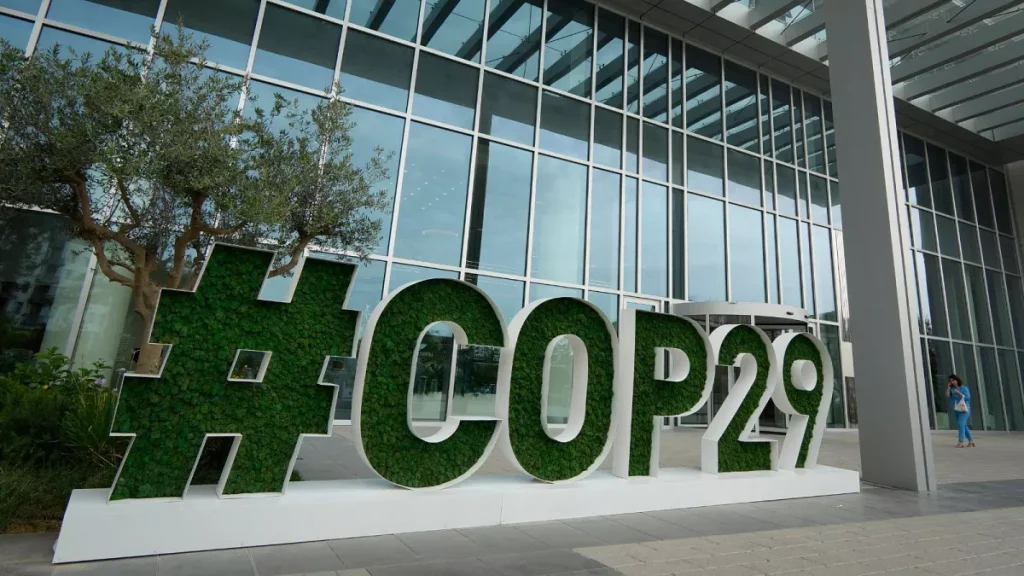A coalition led by France, Kenya, and Barbados has proposed new taxes on plastics, cryptocurrencies, and high-pollution industries to generate hundreds of billions of dollars for climate finance and aid for developing nations.
The proposal, called “Global Solidarity Levies,” aims to impose taxes on industries contributing to environmental damage to help bridge the climate finance gap.
Speaking at the UN’s COP29 climate summit in Azerbaijan, Barbados Prime Minister Mia Mottley, a vocal proponent of climate action, said levies on sectors like aviation, shipping, and fossil fuels could potentially generate around $350 billion annually. Mottley pointed out that many polluting sectors provide minimal financial support toward development and climate efforts.

The task force’s report suggests levies on private jet fuel, frequent flyers, fossil fuel windfalls, cryptocurrency transactions, shipping, and even certain financial transactions. A tax on cryptocurrency transactions alone could yield billions, according to the report, due to the high energy usage in crypto mining. The group estimates that a levy on plastic pollution could raise $25 to $35 billion annually, with funds directed towards supporting developing nations combatting plastic waste.
In addition to the lead countries, the task force includes the EU and the African Union, with Brazil indicating it may soon join the coalition.

